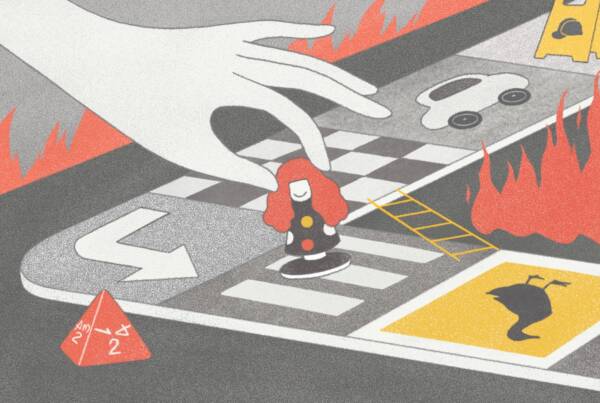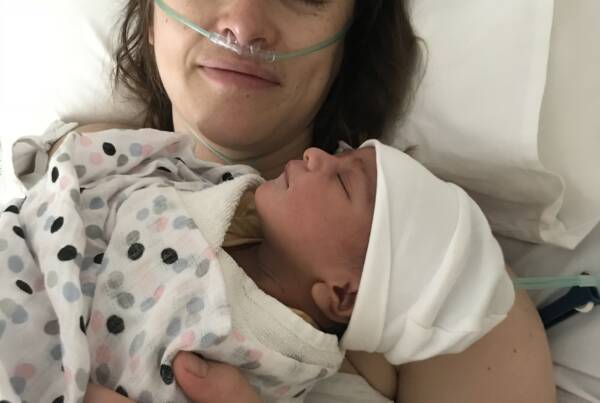Writing by Mikaela Felstead // Photograph by Alessandra Scalogna
Alternatives to the Pill for Medical Conditions
If you are considering taking the pill for medical conditions like acne, here are some other options to try out before resorting to the pill.
For Irregular Periods: A significant amount of healing and hormone production takes place at night time while we sleep. Research by Dr. Michael Smolesky has shown that the more we use bright lights at nighttime, the less regular our menstrual cycles become. Modern life disrupts our natural circadian rhythms due to the use of artificial lights, television screens, computers, tablets, and mobile phones after the sun has set, as well as the fact that most of us stay up way too late for optimal sleep to then occur. To balance out your circadian rhythm and to help regulate your menstrual cycles, it is best to avoid bright lights and screens for at least an hour or two before going to bed – as well as going to bed no later than 10.00pm! It’s also beneficial to go easy on the steady-state cardio, and instead opt for walking, sprinting, weight lifting, pilates, or yoga. Research shows that cardio exercise (such as steady- state running) as well as poor-quality sleep are both detrimental towards thyroid function, metabolism, adrenal health, and hormonal regulation.
For Acne, PMS, Heavy Periods, Endometriosis & PCOS: The underlying culprits behind PMS are usually either oestrogen dominance or neurotransmitter imbalances. Acne, heavy periods, endometriosis, and PCOS are commonly a result of oestrogen dominance as well as inflammation. PCOS is also commonly linked with insulin resistance, being overweight or dramatic weight loss, over-exercising, stress and adrenal fatigue and environmental toxins. Oestrogen dominance is often due to an overburdened liver, as the liver is responsible for clearing the body of old hormones. If the liver becomes burdened by a pro-inflammatory diet that includes high amounts of sugar, alcohol, trans fats, and chemical additives, it becomes sluggish in its capacity to process hormones.
Being stressed can also contribute towards oestrogen dominance, as stress decreases progesterone production. When progesterone levels decline in relation to oestrogen levels, symptoms of oestrogen dominance can develop. Before going on the pill to manage any these conditions, it may be worth seeing a qualified naturopath or integrative medicine doctor for diet and lifestyle guidance as well as functional pathology testing to assess the health of your gut, liver, thyroid, and adrenal glands, all of which can play a role in poor hormonal balance if they aren’t functioning optimally.
Nutrients, diet, and lifestyle play a grossly underestimated role in all of these conditions, and cutting out processed foods alone can often result in dramatic improvements, without any of the side effects that come with pharmaceutical interventions.
Alternatives to the Pill for Contraception
– Male condoms are 98% effective at preventing pregnancy when used correctly. Unlike the pill, they also protect both the male and female from numerous sexually transmitted diseases.
– Female condoms are 95% effective, and are made even more effective when used in conjunction with spermicides. They are also less likely to tear than male condoms.
– Diaphragms can be fitted into the vagina by a doctor, and they act as a barrier to sperm. When used correctly in conjunction with spermicides, they are 92-98% effective in preventing pregnancy.
– The “Fertility Awareness Method” involves charting your fertility and tracking your ovulation in order to avoid pregnancy (or in order to aid conception, depending on your goal!). While it does involve some diligence to be effective, it is quite straight-forward and is also a wonderful way to get in tune with your body and its patterns. If you are interested in learning more about this option, I highly recommend Toni Weschler’s book “Taking Charge of Your Fertility”. Regardless of our contraception choices, in my opinion this book contains important and useful information that should be taught to all of us as teenagers in order for us to better-understand our bodies. Sure, our hormones have the ability to run wild and affect our lives in somewhat annoying or even unbearable ways, but our hormones are also what allow us to feel excited, driven, and alive — and using the pill to mess with them clearly increases the risk of some not-so-great stuff for both ourselves and the environment. Considering that there are numerous different options available for both contraception and hormonal regulation that don’t involve the use of synthetic hormones, it’s worth exploring all the options in full and asking yourself if the pill is really the best choice for you.
General Health Tips for Women, On and Off the Pill
Of course there are still circumstances and situations where the benefits of the pill may outweigh the risks for certain individuals, such as for those experiencing debilitating pain from endometriosis. Just always know that, even if the pill may be necessary to manage symptoms and to be able to get on with everyday life initially, there are many other aspects of your health that can be explored thereafter in order to support your body and work towards a time when the pill may no longer be required for you to be symptom-free.
Here are some tips to get you on the right track:
– Get adequate sleep (a bare minimum of 8 hours a night) to increase serotonin production.
– Find a way to reduce your stress levels, whether it be via meditating, walking, journalling, or dedicating more time towards a hobby that you enjoy.
– Exercise regularly
– Drink around 2 litres of filtered water each day to stay hydrated and to help the body rid itself of waste.
– Eat a healthy, anti-inflammatory, nutrient-dense diet made up of whole foods and ample amounts of vegetables.
– Consume at least 3 servings of fatty fish (such as salmon or sardines) each week to reduce inflammation, as well as including as many other anti-inflammatory foods in your diet such as ginger, garlic, turmeric, green tea, extra virgin olive oil, and veggies.
– Support your gut flora and digestive system by including fermented foods in your diet, such as sauerkraut, kimchi, kombucha, water kefir, beet kvass, and coconut yoghurt.
– Support your liver health by reducing your exposure to sugar, caffeine, alcohol, human-made hydrogenated oils (such as margarine) and trans fats, excess omega-6 fats, and artificial additives such as colours, flavours, preservatives, and emulsifiers, as well as increasing foods high in choline such as egg yolks and organic organ meats.
– Reduce your consumption of foods that contain phytoestrogens, such as soy and flax.
– Minimise your exposure to xenoestrogens such as BPA (found in plastics and most foods and liquids that are packaged in plastics) as well as fertilisers on the skins of non-organic fruits and vegetables.
If you’re after further guidance regarding contraception or hormonal health, find a qualified naturopath or integrative medicine doctor to help you out. As put by Dr Kelly Brogan MD, “If there is a treatment option that presents minimal to no appreciable risks and some degree of evidence- based benefit, this, to me would represent the kinder, gentler road to health.”
Disclaimer: This article is intended for educational purposes only. Such content is not intended to, and does not, constitute legal, professional, medical or healthcare advice or diagnosis, and may not be used for such purposes. Always seek the advice of your physician or other qualified health provider with any questions you may have regarding a medical or wellness condition. You should not act or refrain from acting on the basis of any content included in this article without seeking the appropriate medical or other professional advice on the particular facts and circumstances at issue from a doctor or other trained health care professional licensed in the reader’s state, country or other appropriate licensing jurisdiction.







